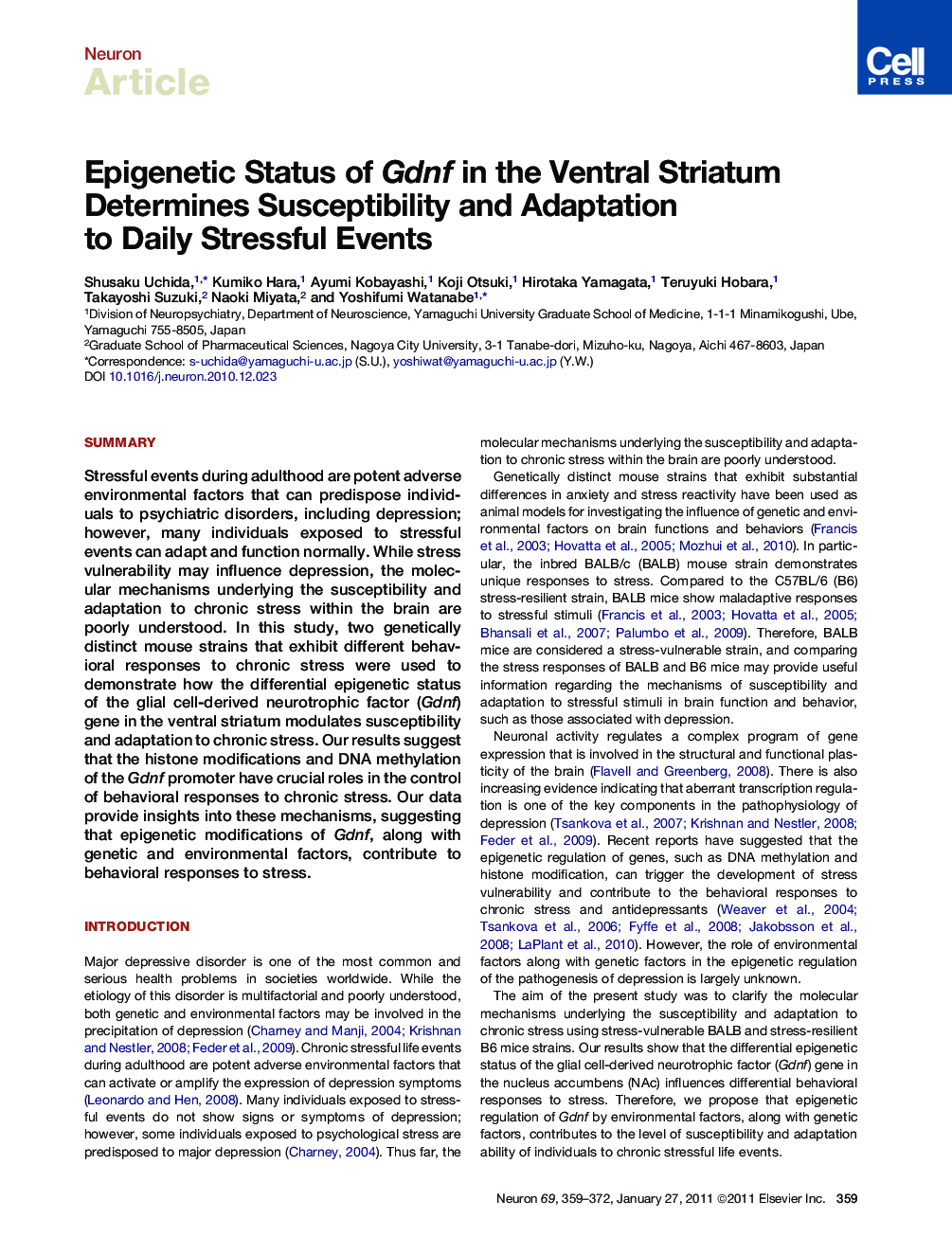| Article ID | Journal | Published Year | Pages | File Type |
|---|---|---|---|---|
| 4322232 | Neuron | 2011 | 14 Pages |
SummaryStressful events during adulthood are potent adverse environmental factors that can predispose individuals to psychiatric disorders, including depression; however, many individuals exposed to stressful events can adapt and function normally. While stress vulnerability may influence depression, the molecular mechanisms underlying the susceptibility and adaptation to chronic stress within the brain are poorly understood. In this study, two genetically distinct mouse strains that exhibit different behavioral responses to chronic stress were used to demonstrate how the differential epigenetic status of the glial cell-derived neurotrophic factor (Gdnf) gene in the ventral striatum modulates susceptibility and adaptation to chronic stress. Our results suggest that the histone modifications and DNA methylation of the Gdnf promoter have crucial roles in the control of behavioral responses to chronic stress. Our data provide insights into these mechanisms, suggesting that epigenetic modifications of Gdnf, along with genetic and environmental factors, contribute to behavioral responses to stress.
► Stress-induced impairment of GDNF synthesis increases depression-related behaviors ► HDAC2 is required for stress-induced Gdnf repression and behavioral deficits ► DNA methylation is required for stress-susceptible and stress-resilient phenotypes ► MeCP2-HDAC2 complexes contribute to stress-induced Gdnf repression
